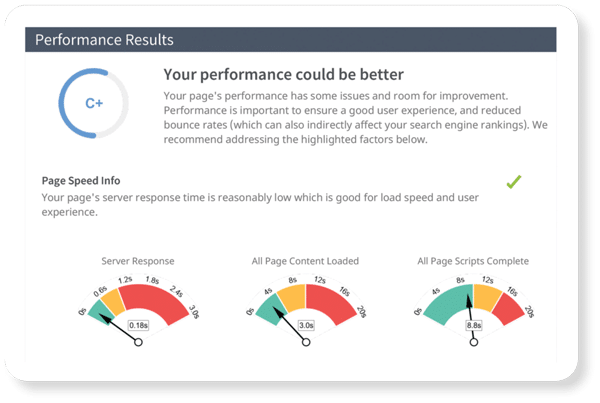As important as search engine optimization (SEO) is for a business website, and as complicated as it can be to get right if you don’t know what you’re doing, outsourcing it to a knowledgeable professional is a common route for many businesses. But the truth is, there’s a lot of bad Advice out there in the SEO world. Knowing who to trust with the SEO of your website can be difficult, so knowing what to look out for is a good place to start. Here are four major red flags to look out for as you consider your options.
1. They promise immediate results.
SEO is a time-consuming process that requires patience and dedication because it involves numerous complex factors that influence a website's search engine ranking. Search engines like Google use intricate algorithms that consider various aspects such as content quality, backlinks, user experience, and site authority. Achieving substantial improvements in these areas often takes time and ongoing efforts. While some quick fixes or temporary gains might be possible within, say, 30 days, sustainable and meaningful SEO results demand a long-term commitment. SEO just takes time.
Anyone promising significant SEO improvements within a mere 30 days is probably making unrealistic claims. Genuine SEO experts understand that it takes consistent, ethical, and well-planned strategies to yield lasting results. It can be frustrating to hear this, but it’s better to emphasize the need for patience and persistence in the pursuit of higher search engine rankings instead of setting false expectations in the interest of getting a sale.
2. They promise more traffic – and only traffic.
Website traffic is certainly a crucial metric in assessing SEO performance, but it's important to remember that it's not the only indicator of success. If it’s the only thing an SEO vendor is focusing on, be wary.
The truth is, that traffic can be misleading because not all traffic is the same. Some visitors are more relevant to your website and your business and are more likely and ready to become your client than others. There are absolutely ways to parse out this traffic based on which is high and which is low intent. But a more comprehensive approach to SEO measurement involves looking past traffic altogether and incorporating other key metrics too, such as conversion rate, bounce rate, click-through rate (CTR), and user engagement. These metrics provide insights into how effectively your website is meeting its goals, whether that is through conversions from visitors into clients, lead generation, or user engagement. Monitoring keyword rankings, backlink quality, and the overall user experience can offer a more well-rounded view of your SEO efforts.
Ultimately, the exact combination will depend on your business goals, which means the right SEO vendor will take the time to really get to know you and your business, taking a holistic approach that combines various metrics to ensure a more accurate assessment of SEO performance and allows for targeted improvements that align with your specific objectives.
3. They have a “one size fits all” approach.
While there are certainly best practices and proven methods to follow for SEO, ultimately, success looks different for every business. Any vendor who doesn’t first spend the time assessing your unique goals and business needs and creating a plan based on them is probably not worth your time or money. Since every business has different goals, and each website has unique challenges, a one-size-fits-all approach to SEO never works. The best chance at success depends on tailoring your approach to address specific variables directly, taking into account your industry too.
By tailoring SEO strategies, businesses can better align their efforts with their individual needs and circumstances. This approach enables them to focus on the most relevant keywords, create content that resonates with their audience, and adapt to changing trends and algorithms. In the dynamic world of SEO, flexibility and adaptability are essential, making it crucial to avoid a one-size-fits-all mindset in favor of a more personalized and strategic approach. Ultimately, ranking higher for the sake of ranking higher isn’t effective if it doesn’t ultimately bring in more revenue for your business.
4. They don’t care about content.
A good SEO strategy should involve content to some degree. Whether that’s updating your website copy or starting a blog, content and SEO still go hand in hand. Content is important to effective SEO because it serves as the bridge between websites and search engine users. High-quality, relevant content not only informs and engages visitors but also communicates to search engines the value and authority of a website. Search engines like Google prioritize content that answers user queries, provides valuable information, and meets user intent. Fresh and well-structured content not only keeps visitors on a site longer but also encourages sharing and linking, which are crucial for building a website's authority and trustworthiness. Second guess any SEO vendor that isn’t bringing these things up or incorporating content into their recommendations.
We Can Help
MyAdvice has been helping businesses dial in their SEO strategies for more than 20 years. We know you have specific needs – our digital marketing experts can help you create the exact SEO strategy that will meet your needs. Contact us today to see how we can help.


